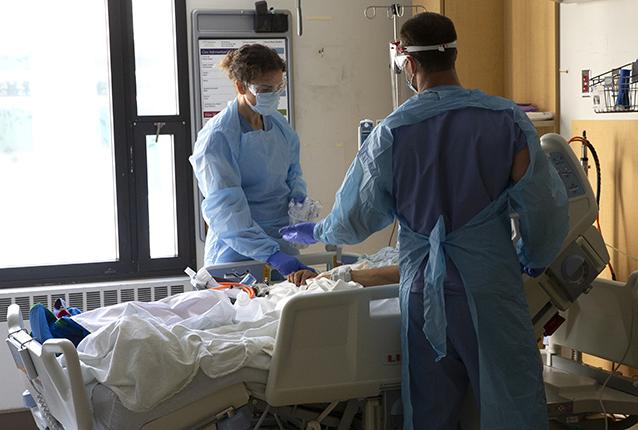

Clinicians grapple with decisions in crisis-care simulation
The COVID-19 pandemic has led healthcare organizations to draft plans for critical patient care in the event of shortages of resources such as ventilators.
Invoking “crisis-care” standards at a hospital would prompt the deployment of a triage team—three or four seasoned clinicians and a medical ethicist responsible to determine which patients have the best chance of survival and prioritizing these people to receive scarce resources while deprioritizing others.
If this task sounds tragic, you’re in good company: A new analysis conveys the moral distress that triage team members experienced while participating in a simulated crisis-care event in which they had to decide which patients would and would not be prioritized to receive life-sustaining resources.
Dr. Catherine Butler, assistant professor (Nephrology) is lead author of a new study published in JAMA Network Open that conveys the moral distress that triage team members experienced while participating in a simulated crisis-care event in which they had to decide which patients would and would not be prioritized to receive life-sustaining resources.
“This was a setting to try to operationalize a process for making life-and-death patient decisions in a way that most medical professionals have never faced before,” she said.